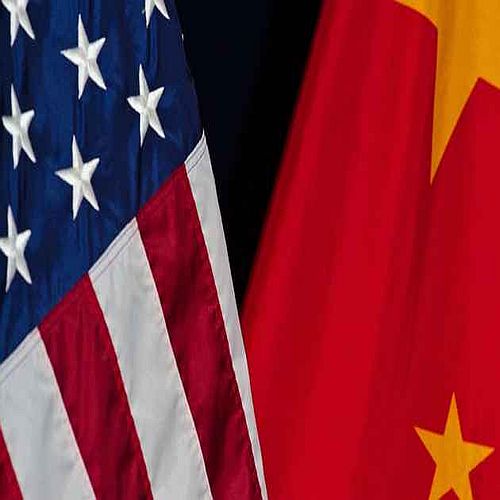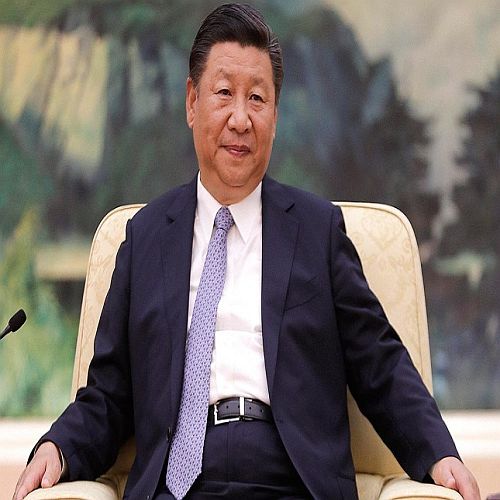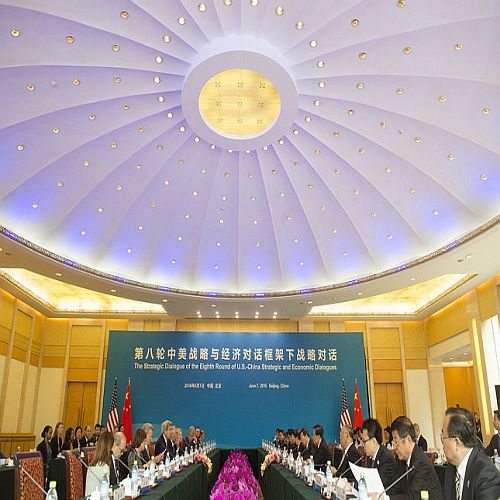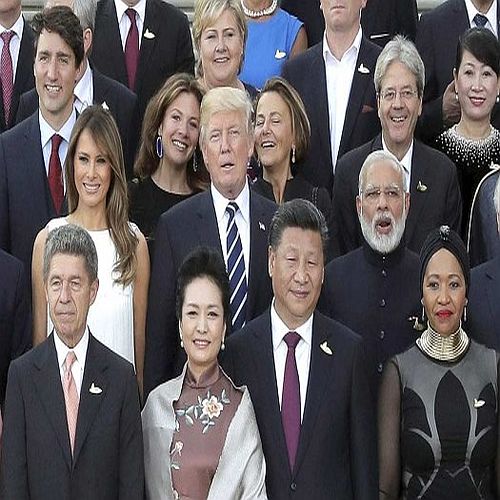In 12 out of 16 cases in the past 500 years when a major rising power “disrupted the position of a dominant state” the contest ended in war according to Graham Allison’s recent study. Clearly, the historical odds of a harmonious US-China power transition are not very high. But this is not just a typical relationship. One challenge in studying US-China relations is that both sides, for a variety of reasons, feel compelled to often obscure their parallel interests. For Beijing, the reasons are linked to both its state identity and legitimacy around China’s standing in the developing world. The Chinese cannot exude a G-2 posture beyond a certain point without incurring real costs to its international status and domestic political stability. For Washington, an overt cooperative posture could unravel its Asian alliances by provoking fears of abandonment as well as complicate the aim of deepening ties with China’s other neighbours since much of that engagement is sold on the premise of US-China antagonism.
US And China Will Avoid A ‘Thucydides Trap’
Why are US-China ties so stable?
Why are US-China ties so stable?
Economic interdependence is the most obvious answer. Given the $650 billion in annual bilateral trade, a significant stock of investment in US treasuries held by China, $300 billion in two-way FDI in both economies, MNC production supply chains in mainland China, the latter largely the result of outsourced production intended for US consumption. In other words, the top line figures on US trade deficits with China need to be interpreted with the recognition that US firms have offshored production to China to recycle it back to the US homeland as well as to supply other markets. America’s aggregate economic position, despite internal imbalances and adverse inter-sectoral shifts, has largely benefited from the relationship with China.
To be sure, the risks of US internal politics complicating economic engagement with China cannot be discounted even though the Steve Bannon line of “economic nationalism” has been weakened by the dominant globalist faction in the Trump administration. The contrasting views from the US and Chinese sides after their first Comprehensive Economic Dialogue held in July was quite interesting. While the US projected little progress, the Chinese statement was far more positive, specific and forward looking. One of the constraints in US might very well be the shadow of domestic politics and the consequent need to engage in cooperation by stealth with China. Nevertheless, both sides are bargaining hard, which is natural as they attempt to take their economic ties to a more sustainable level.

While it is difficult to imagine a dramatic separation of these giant economies, commerce is not the sole bond for a stable US-China relationship. Balance of power thinking has been central to America’s China policy. With the “loss” of China in 1949, western strategists have been motivated by a grand strategic quest to undermine Eurasian unity – that is, split Russia and China – to maintain a favourable regional and global balance of power, while simultaneously leaving an open door for China. Although the means or combination of tools employed might have changed over the decades, the idea that China ought to be socialized into the international system has been an integral part of US geostrategy for many decades including during periods of extraordinary turmoil inside China. Notice, for example, this March 1966 US National Security Council Memorandum, drafted at the peak of the Vietnam war:

“One highest priority task for American policy-makers in the years ahead is to help domesticate the Chinese Communist revolution in its relations with other nations – or, to put it another way, to help reclaim the Chinese mainland to responsible membership in the world community…the argument of Chinese intransigence or non-responsiveness is only marginally relevant. The strategy of flexible initiatives is based not on expectation of a favorable Chinese response but rather on several near-term and longer-term objectives.”
Fast forward to the 2015 US National Security Strategy: “The scope of our cooperation with China is unprecedented, even as we remain alert to China’s military modernization…” Or to 2017, in the words of US scholar Susan Shirk, “U.S. officials should continue their largely successful efforts to integrate China into the global community…the United States should support initiatives that serve U.S. interests, even if they originate in Beijing.” Aside from realpolitik and order-building reasons, there’s also what John Pomfret calls a “cultural benevolence” in America’s historical approach towards China. The construction of images towards China have invariably been shaped by the belief that US-China relations were destined for something bigger and different from traditional great power relationships. “For two hundred years”, as Pomfret’s recent book meticulously chronicles, “America has held that the stability of China is in the direct interest of the United States. That is not going to change. Indeed, if given a chance, there is a concordance emerging between the two nations.”

On the whole, US policymakers and the analytical community seem acutely conscious of a power transition and of the imperative to manage it wisely. Graham Allison’s recent allusion to the ‘Thucydides trap’ is interesting because rather than espousing a zero-sum adversarial outcome, he is calling into attention the need to pro-actively avoid one. Let’s appraise US deeds in recent years as well. Note the delicate power projection of the US Navy on China’s maritime periphery and the absence of a Sino-American crisis during the period of Chinese assertiveness in the Western Pacific even as US and Russia engaged in relentless confrontations on Eurasia’s other flanks. Also instructive is the strategy of accommodation in other issue areas particularly international finance as exemplified by the 2016 decision to include the yuan in the International Monetary Fund’s basket of reserve currencies and the generally positive US perceptions towards the Belt and Road initiative. We also now see signs where the Pentagon and PLA are developing communication channels to avoid miscalculation and enhance crisis management options.

It appears that the US dilemma is not so much that China’s rise is incompatible with US conceptions of world order and the global economy, which it largely is not and we have yet to see a viable Chinese alternative to the status quo other than a reformed and perhaps more balanced version of the existing system. The assumption here, of course, is that US elites no longer claim to be the vanguards of the ‘Washington consensus’ and the ‘end of history’ worldview – a triumphalist delusion – and have been tempered by successive geopolitical and geoeconomic crises over the past decade. Ironically, as some in the US now candidly observe, China is becoming more of a stakeholder and pillar of the existing system, an outcome sought by western policymakers for decades, and this is now perceived as a bit of a problem. So, arguably, it is less about rival ideological visions and more about control and power. For the US, China’s rise means losing some control over the governance of the international system. Unlike the hierarchical relationships with its junior allies, partnering with China implies a different psychological outlook even if the fundamental goals of maintaining order – an open world economy and geopolitical stability – remain more or less the same in Washington and Beijing.
Security interdependence, but not a G-2
The one arena where some forecast a dangerous rivalry is in the Western Pacific. Much depends on how US and China define their interests and visions for a regional order. If both sides seek primacy, then we are certainly staring at a tumultuous future and probable collision. But what if American and Chinese leaders define their state’s interests more astutely? Rarely has there been a rising power more conscious of the fate of those that faltered before it than China. Indeed, one of the understudied themes of the Belt and Road initiative is that it reflects a pragmatic Chinese choice to avoid a headlong maritime collision with the US in the Pacific and instead prioritises order building and involvement in Eurasian affairs and its immediate continental periphery, an area where competition with the US is relatively muted.

America’s core interest lies in maritime East Asia: access to the region, recognition of its economic interests, and, acceptance of its alliance system. Although clearly pushing on the margins and espousing the diminishing value of a bloc-based system (à la Xi Jinping’s “Asia for Asians”), Chinese practices do not yet reflect a dramatic shift where actively undermining US alliances and the basic open regional political economy has become a mission for Beijing. Neither is it apparent why China might relish the prospect of underwriting regional security and managing the burden of so many intramural disputes and competing nationalisms by itself. If given a choice between a defensive-oriented US alliance system and an unraveling of the existing security edifice followed by nuclearization of several states and lots of independent and uncoordinated foreign policies, the Chinese would prefer the US to be its main interlocutor on regional high politics, particularly on issues where US allies are involved.
Wang Jisi of Peking University recently called for a conversation on a new multilateral security architecture that should include Russia and India. A recent US think tank study also posed what is likely to be a central question in the coming years, “How do China and America establish a working relationship with each other that accommodates the legitimate interests of other Asian states?” Both sides increasingly recognise that a G-2 type of arrangement is unviable and there are far too many actors with independent identities and interests that must be included in the evolving order if it is to possess legitimacy and stability. The utter failure of Washington and Beijing to manage the DPRK nuclear issue should put to rest any fears of a Sino-American condominium.
More broadly, the resilience in US-China relations despite significant changes in the international environment and in the domestic politics in both countries over the past decade is remarkable. It is perhaps easier to speculate what US-China relations will not look like in the foreseeable future. It won’t ensue like the British accommodation of America’s rise in the nineteenth century. It also won’t play out like the violent Anglo-German clash in the early twentieth century. Nor would it resemble the US-Soviet ideological rivalry during the first Cold War or the intense US-Russia confrontations and proxy wars during the past decade. The Sino-American relationship is sui generis. The present US posture is one of balancing against select components of Chinese power but accommodating a variety of other significant aspects of its rise, particularly China’s economic and institutional engagement with the rest of the world. We are unlikely to see a fundamental shift from this framework although the tactics and policy tools to attempt inducing greater Chinese collaboration with the US – whether tacitly or actively – are certainly in flux. The odds that the US will choose a strategic adjustment to China’s rise and the latter will reciprocate and shape such a choice seems far higher than a descent into the so-called ‘Thucydides trap’.
Zorawar Daulet Singh is a Fellow at the Centre for Policy Research, New Delhi